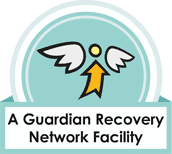Connecting to
Community
Addiction is a lonely and isolating disease, which is why group therapy serves as such a valuable tool in the scope of long-term addiction recovery. Group therapy provides clients with a stronger sense of community and an open environment in which they can openly talk about their issues without judgment, and both give and accept support.
There are many benefits of group therapy, including:
- Improved communication. Clients are given a valuable opportunity to improve their interpersonal communication skills and gain insight into how they perceive themselves–and how they are perceived by others.
- Peer-to-peer support. Group therapy offers a variety of perspectives and feedback. Clients learn how to take feedback constructively and express themselves without resorting to aggression.
- Recovery skills. Many experiential group activities seeks to improve coping skills that will ultimately prevent relapse. Clients are equipped with the skills they need to manage relapse triggers and challenges post-treatment.
Group therapy is a versatile treatment modality and can take on many forms in addiction recovery. Princeton Detox & Recovery Center utilizes several forms of group therapy, which include:
- Support groups
- Disease education sessions
- Skills groups
- Experiential therapy
We Are Here For You
Let Us Help You Heal
Our Drug & Alcohol detoxification experience is second to none.
Learn how we can help by speaking with one of our Treatment Advisors today.
Gender-Specific
Group Therapy
Opening up about personal issues can be intimidating to those who have never participated in group therapy sessions before seeking addiction treatment.
As humans, we are naturally more inclined to open up around people who are similar to us, whether they are the same gender, age or of the same socioeconomic background. A gender-specific group therapy session that includes exclusively men or exclusively women, and allows clients to feel more comfortable discussing topics that might be more difficult to discuss in a mixed-gender group.
Additionally, gender-specific group therapy allows for the thorough discussion of challenges that are unique to one sex or the other. For example, a man whose addiction has affected his relationship with his spouse and children will feel less isolated knowing that other men in the group are experiencing the same concerns.
Support
Groups
There is strength in community. At Princeton Detox & Recovery Center, we offer support groups that provide a safe, non-judgmental environment where clients can openly discuss the challenges of addiction recovery. A support group setting, such as Alcoholics Anonymous, encourages mutual support and feedback amongst participants while helping clients improve their interpersonal communication skills and express themselves without aggression.
Ready To Begin Your Detox?
Don’t let addiction control your life.
Call us today and let’s get you started on the path to a better you.
Disease
Education Sessions
For someone to fully embrace treatment, he or she needs to understand the numerous neurological and psychological factors that can lead to addiction. Our disease education group sessions give clients a comprehensive overview of addiction and relapse, and provide a detailed plan for managing the challenges they can expect to face during early recovery.
Life Skills and Relapse Prevention
Groups
Many addicts are used to turning to drugs or alcohol anytime they encounter a problem and, as a result, they have likely forgotten how to effectively deal with stress, manage conflict and handle day-to-day adversities on their own. Skills groups teach participants relapse prevention skills, as well as practical life skills, such as making a budget or finding a job.
Experiential
Group Therapy
Participating in real-world experiences will allow clients to put their coping skills to use in social settings, whether they’re dining out at a restaurant or taking a hike on a nearby trail. Many of these experiential group therapy situations present challenges and triggers for those in recovery. However, there is strength in numbers, and with the support and sense of community a group provides, clients can learn how to overcome these everyday challenges in healthy, non-destructive ways.
Healing
Starts Here
Our attention to individualized care and therapy programs can be the difference between a lifetime of challenges or a full recovery. Take the first step toward a better, more fulfilling future. Speak with one of our Treatments Advisors 24 hours a day, 7 days a week by calling 1-877-508-2278.





























